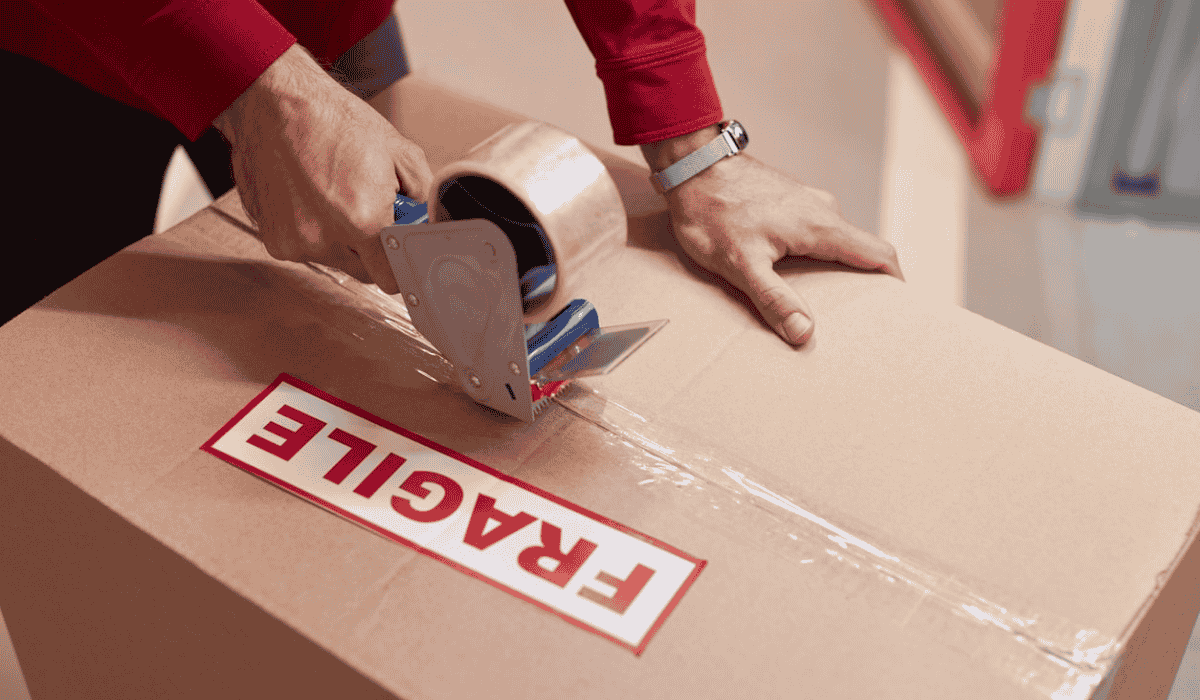Role of an Estate Liquidator: What You Need to Know
Understanding What Estate Liquidators Do and Why You Might Need One

In times of major life transitions—whether due to the passing of a loved one, downsizing to a smaller home, or moving into assisted living—navigating the disposition of a household's belongings can be overwhelming.
That’s where estate liquidators come in. These professionals provide essential services that ease the emotional and logistical burden of clearing an estate.
Understanding the role of an estate liquidator is crucial if you’re considering holding an estate sale or need to manage an estate efficiently and respectfully.
This article explores everything you need to know about estate liquidation services, the value they offer, and how to identify the best estate liquidators for your unique situation.
What Is Estate Liquidation?
Estate liquidation is the process of selling off the entire contents of a home.
Unlike garage sales or yard sales, estate liquidation typically involves high-value items such as antiques, collectibles, jewelry, furniture, and even vehicles.
It often occurs during significant life changes such as death, divorce, or relocation.
Estate liquidation differs from a traditional estate sale in scope and complexity.
It involves thorough planning, evaluation of items, pricing, marketing, and proper hosting of the sale.
The process also includes handling post-sale tasks like unsold item donations or clean-outs.
Who Is an Estate Liquidator?
An estate liquidator is a professional who specializes in managing the estate liquidation process from start to finish.
Their role goes far beyond organizing a simple sale.
They coordinate logistics, appraise items, attract buyers, handle financial transactions, and ensure that the sale complies with local laws and regulations.
These experts work to maximize the value of estate items while relieving the owner or family of the stress associated with liquidating personal property.
Some liquidators work independently, while others operate through established estate sale liquidators companies.
The Responsibilities of Estate Liquidators
Here’s a detailed breakdown of what the best estate liquidators do:
1. Initial Consultation and Evaluation
Every estate sale begins with a consultation.
The estate liquidator will visit the home, assess the volume and value of the items, and determine whether an estate sale is the best approach.
They'll provide recommendations based on market trends, item demand, and your specific needs.
2. Inventory and Appraisal
Once a decision is made to proceed, the liquidator will inventory the contents of the estate and appraise the items.
This may involve pricing everything from furniture and artwork to vintage clothing and kitchenware.
Knowledgeable liquidators often work with specialists for high-value or rare items.
3. Organizing and Staging
Staging is crucial to a successful sale. Estate liquidation services typically include organizing items neatly and attractively throughout the home.
Items are grouped, labeled, and arranged to maximize visibility and appeal.
4. Marketing and Advertising
The estate liquidator will advertise the sale across various channels—online platforms, estate sale websites, social media, and traditional print ads.
A successful liquidator knows how to reach targeted buyers and collectors.
5. Hosting the Sale
During the sale, the liquidator manages crowds, monitors transactions, answers questions, and provides security.
They ensure that the event is orderly and professional while creating a positive shopping experience for buyers.
6. Handling Payments
They manage all financial aspects of the sale, including cash and card transactions.
After the sale, they provide a detailed report of earnings and expenses and disburse the final proceeds to the estate.
7. Post-Sale Cleanup and Donations
After the sale, there are often items that remain unsold.
The best estate liquidators coordinate the donation or disposal of these items and ensure the property is left in a presentable state.
Many also offer coordination with charities for tax-deductible donations.
Why Hire a Professional Estate Liquidator?
Hiring a professional for estate liquidation services is more than just a matter of convenience—it's a smart financial and emotional decision.
Here’s why:
• Expertise in Appraisals
Liquidators have in-depth knowledge of market values. Without this expertise, you risk underselling valuable items or pricing things too high and losing buyers.
• Efficient Process
Liquidators can complete the entire estate sale process—usually within a couple of weeks—far more quickly than you could on your own.
• Stress Relief
Managing an estate can be emotionally taxing, especially after a death or during a move. A liquidator handles the heavy lifting and gives you peace of mind.
• Professional Presentation
Staging and presentation are key to a successful estate sale. Professionals know how to display items in ways that attract buyers and drive sales.
• Legal and Tax Compliance
A reputable estate liquidator understands the legal aspects of sales, taxes, and donations. They ensure that everything is documented and handled according to local laws.
How to Choose the Best Estate Liquidators
Choosing the right liquidator is critical. Here are some qualities to look for when selecting a service provider:
✔️ Experience and Reputation
Look for liquidators with years of experience and a proven track record. Check reviews, ask for references, and verify credentials.
✔️ Transparent Fees
Understand their fee structure upfront. Most estate sale liquidators take a commission from the proceeds, typically ranging between 25-40%. Avoid companies that ask for large upfront payments.
✔️ Comprehensive Services
The best estate liquidators offer full-service packages, including appraisals, staging, advertising, hosting, cleanup, and donation handling.
✔️ Proper Licensing and Insurance
Make sure the liquidator has the necessary business licenses and liability insurance to protect against accidents or losses during the sale.
✔️ Communication Skills
You’ll want someone who communicates clearly, responds promptly, and keeps you informed throughout the process.
Common Misconceptions About Estate Liquidation
“I Don’t Have Expensive Items, So I Don’t Need a Liquidator”
Even common household goods can add up to a significant value when sold collectively. A professional knows how to price and market every item, no matter how small.
“It’s Just Like a Garage Sale”
Garage sales are casual, small-scale events. Estate sales are structured, legally compliant, and often draw larger crowds, especially with advertising.
“Liquidators Take Too Much Money”
While estate liquidators charge a commission, their expertise often results in higher total sales.
Their services can pay for themselves through better pricing, increased foot traffic, and professional handling.
Final Thoughts
Whether you're dealing with the aftermath of a loved one’s passing or simply downsizing your belongings, an estate sale can be an emotionally and logistically complex process.
Partnering with experienced estate sale liquidators brings structure, professionalism, and efficiency to the situation.
From valuation and setup to final cleanup, estate liquidators make the transition smoother, ensuring that valuable possessions are handled with care and sold for fair market value.
Let Experts Handle It All for You!
Looking for the best estate liquidators to manage your estate with care, precision, and professionalism?
👉 The Perfect Piece coordinates all aspects of the estate sale process from beginning to end.
Our team handles the advertising, pricing, staging, and hosting of your sale. After the sale, we arrange for a donation pick up and mail you a check.
Our team will walk you through each step of the estate liquidation process. It’s that simple. Call us today for a FREE consultation!
Whether you’re downsizing, managing a loved one’s estate, or just decluttering, let our experts take care of everything—stress-free.
FAQs
What does an estate liquidator do?
An estate liquidator manages the entire process of selling personal property from a home. Their services include evaluating items, pricing, organizing, staging, advertising, hosting the sale, handling transactions, and arranging for donation or disposal of unsold items.
How are estate liquidation services different from a garage sale?
Estate liquidation services are more comprehensive and professional than a typical garage sale. They focus on maximizing value, include appraisals for valuable items, attract serious buyers, and follow a strategic marketing and staging process.
Why should I hire professional estate sale liquidators?
Hiring professional estate sale liquidators ensures that the process is efficient, profitable, and stress-free. These experts handle every aspect of the sale, from pricing and advertising to post-sale clean-up, allowing you to focus on other priorities.
What are the costs involved in hiring estate liquidators?
Most estate liquidation services operate on a commission basis, typically taking between 25-40% of the total sales. Always confirm the fee structure in advance and ensure it includes services like setup, marketing, and cleanup.
What types of items can be sold through an estate sale?
Items commonly sold include furniture, antiques, collectibles, electronics, jewelry, artwork, household goods, tools, and even vehicles. A good liquidator will help you assess what’s sellable and price it accordingly.
How do I know I’m hiring the best estate liquidators?
Look for professionals with experience, positive client reviews, transparent pricing, and full-service offerings. The best estate liquidators are also licensed, insured, and have a strong marketing strategy to ensure a successful sale.
What happens to the items that don’t sell during the estate sale?
Unsold items are typically donated to charity, sold to secondary buyers, or disposed of responsibly. Many estate liquidation services also handle donation pickups and provide receipts for tax purposes.
Do estate sale liquidators handle online sales?
Yes, some estate sale liquidators also list high-value items online to reach a broader audience. This hybrid approach can help maximize your return by appealing to collectors and out-of-state buyers.











